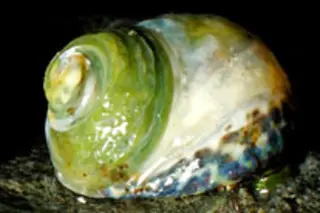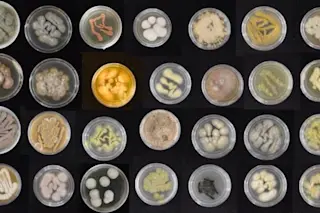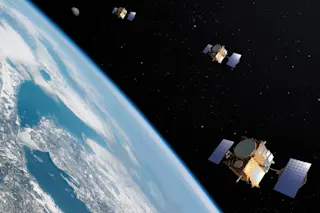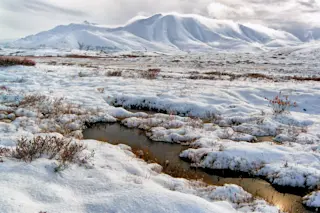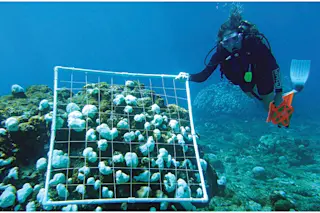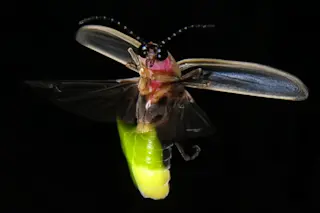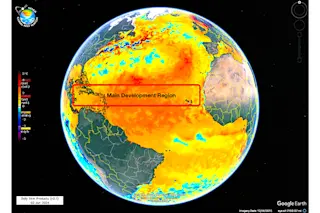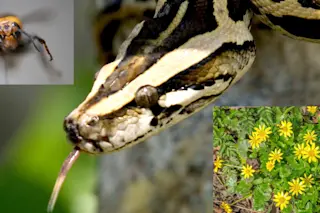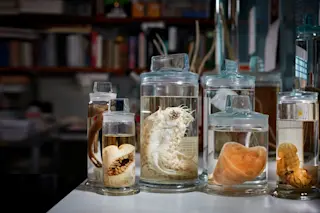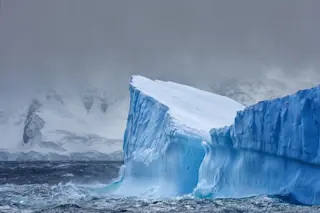Of all the potential effects of global warming on the natural world, one of the most alarming (and how hard it is to choose!) is the expected acidification of the planet's oceans. Because much of the carbon dioxide that humans pump into the atmosphere ends up in the oceans, and because dissolved carbon dioxide makes water more acidic, researchers expect the pH balance of the oceans to shift further towards the acidic side of the scale before the end of the century. Environmental scientists had a pretty good idea of what that would mean for the marine ecosystem, but a new study published in the journal Nature [subscription required] gives researchers a small-scale glimpse at that future. An international team of marine biologists studied natural carbon dioxide vents on the sea floor, and examined the consequences on biodiversity and individual species. What they found bore out expectations, but in a rather depressing way. In the acidic patches around the vent, the number of species present was down 30 percent compared to the rest the Mediterranean coastal zone. There was no coral, which draws calcium carbonate from the seawater to form its exoskeleton; in acidic water the concentration of calcium carbonate falls. Snails spotted in the area were also in trouble. With the decrease of calcium carbonate in the water, their shells began dissolving. Unsurprisingly, the researchers view their results as a wake-up call. Research leader Jason Hall-Spencer from the University of Plymouth said that atmospheric CO2 concentrations were now so high that even a sharp fall in emissions would not prevent some further acidification.
"It's clear that marine food webs as we know them are going to alter, and biodiversity will decrease," he told BBC News. "Those impacts are inevitable because acidification is inevitable - we've started it, and we can't stop it" [BBC News].
Not every species suffered in the brave new marine world. Some sea grasses and algae thrived, apparently fertilized by the increased carbon dioxide. But that wasn't enough to cheer up Dr. Hall-Spencer, who said that when global warming brings about acidic oceans on the grand scale, the results will be even worse than those seen in the vent microcosm.
The researchers ... noted that while fish continued to swim through more acidic waters, they avoided breeding or spawning in them. “That isn't a problem at the moment, as they can go elsewhere,” Dr Hall-Spencer said. “But in a more acidic ocean there will be no escape” [The Times].
No escape... He's still talking about the fish, right?


